Small seeds, big impact.
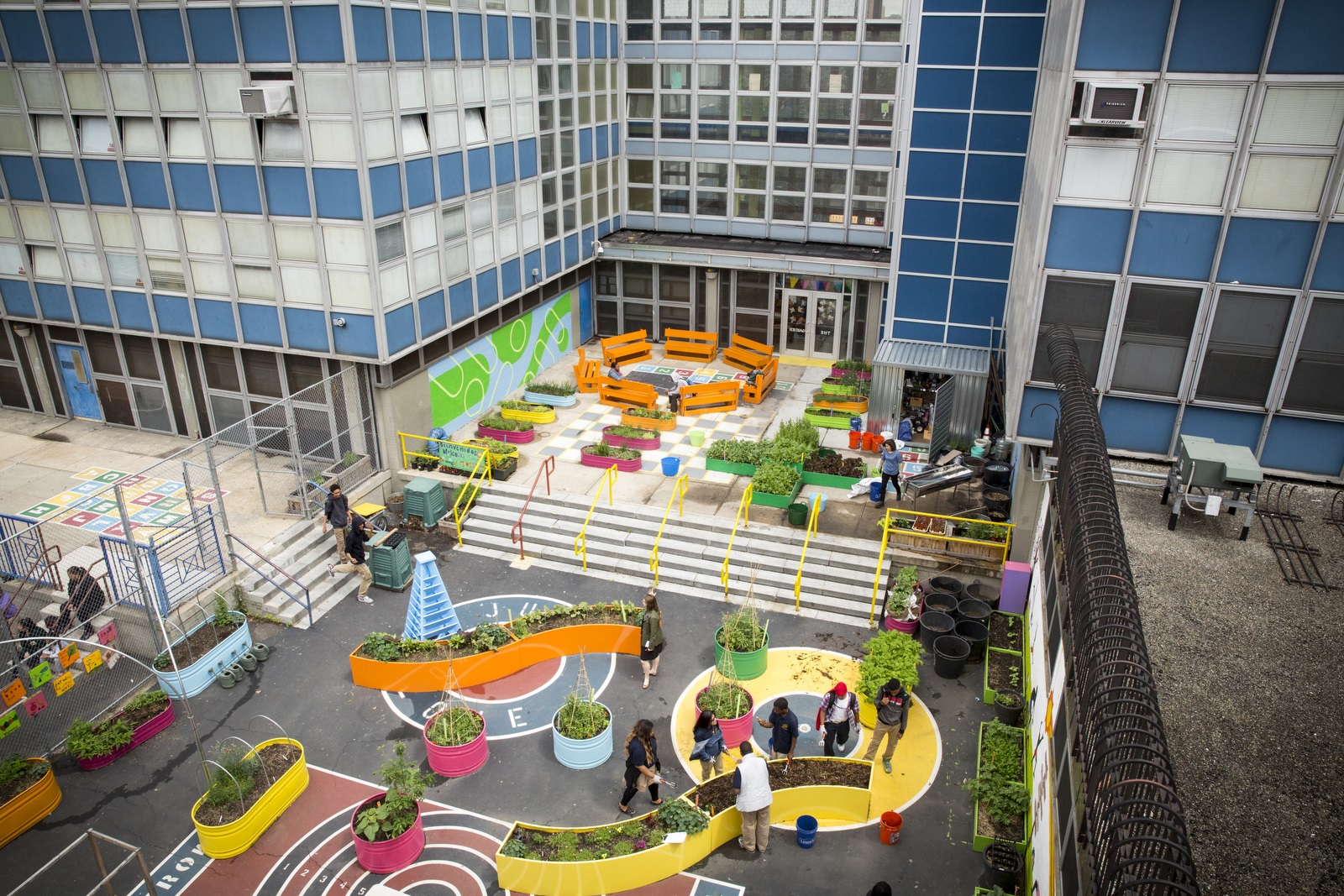
Edible education helps children and communities truly flourish.
Our work creates space for children, families, and school communities to thrive together. By building fundamental social, emotional, academic, and physical skills, children learn how they can lead the way for community wellbeing and equity.
Our programs sit at the intersection of food, nutrition, wellness and sustainability education—essential parts of learning how to build a just and sustainable future for all.
Our reach
Over the 2023-24 school year
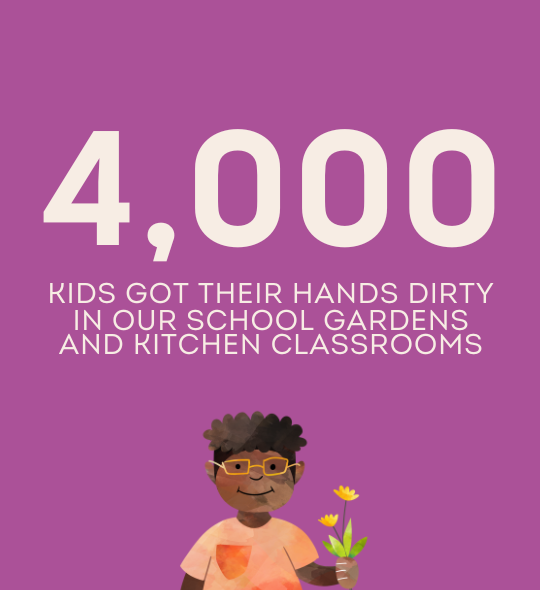
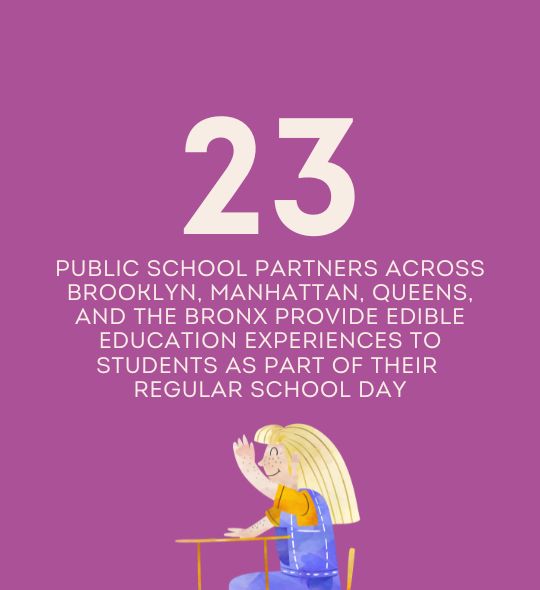
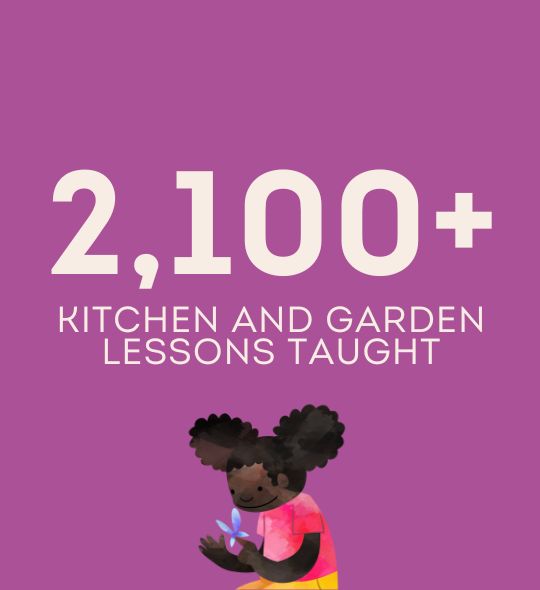
OUR IMPACT AT SCHOOL
Based on recent* surveys, teachers and educators shared that edible education has helped their kids flourish.
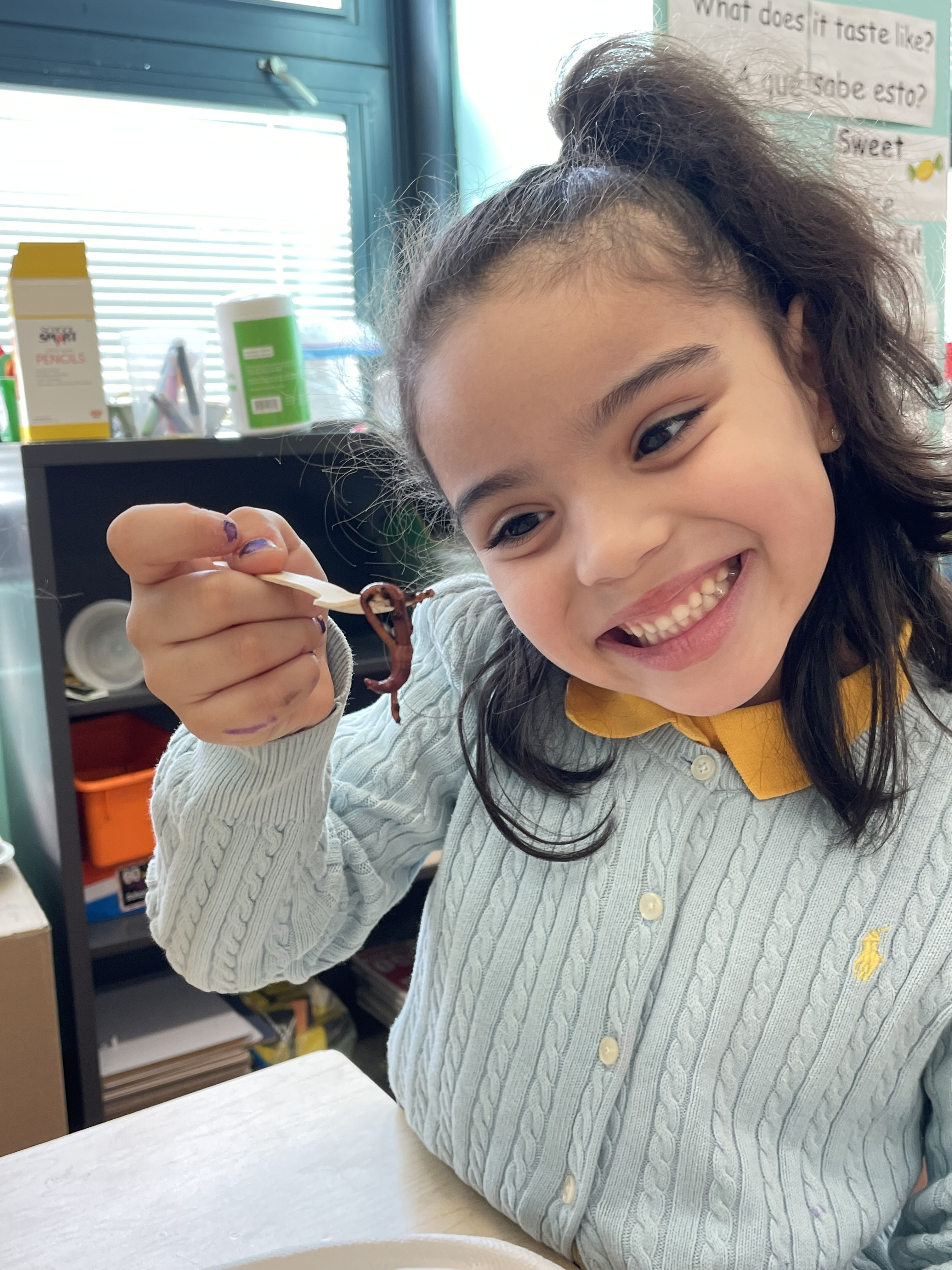
More classroom fun means more engagement in school overall
- 88% of teachers report that students feel more positively about school overall because of ESYNYC
- “Time is already up!? It goes by so fast when we are having fun” -5th grader at P.S./M.S. 7 in East Harlem
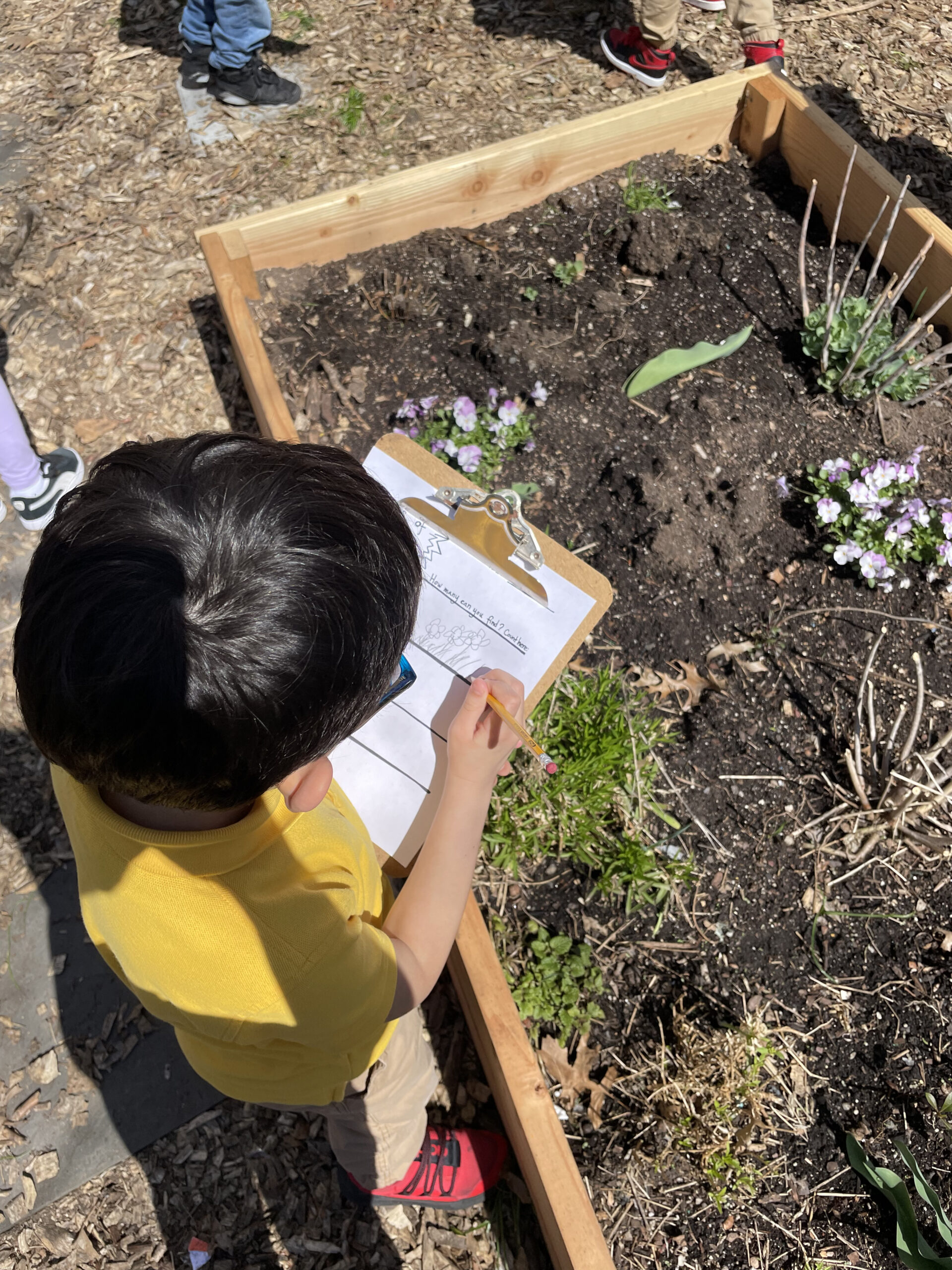
More integrated learning means more connections within lessons
- 82% of teachers report that their students have made academic connections between our lessons and core classes like math and science
- “I get it now!” -6th grader at Evergreen Middle School in Bushwick (to their classroom teacher when working on equivalent ratios with pancakes)
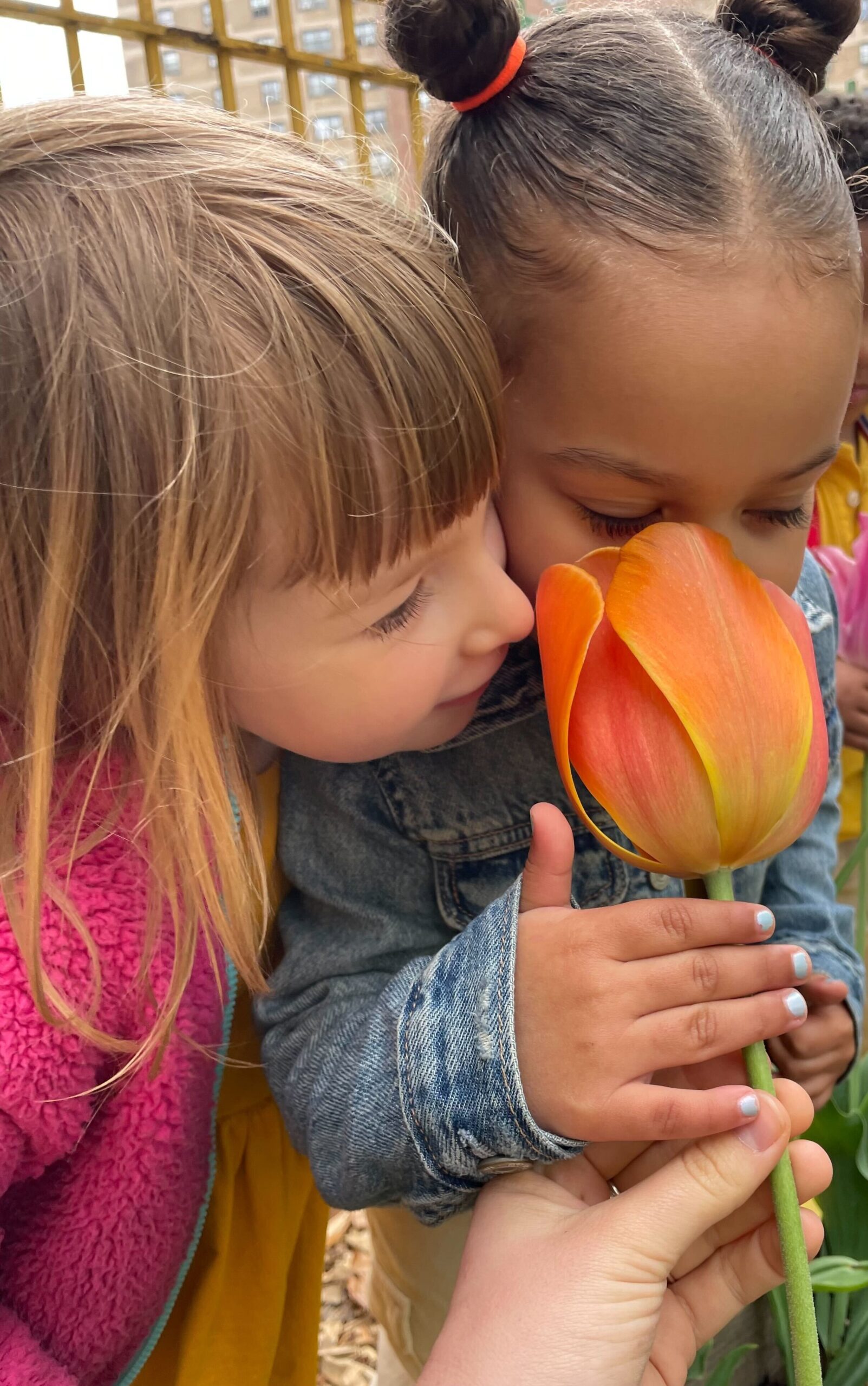
More space for hands-on learning means more social and emotional growth
- 79% of teachers say students feel safe, welcome, and excited to participate in our programming
- 77% of students say they feel confident working with people who are different than them
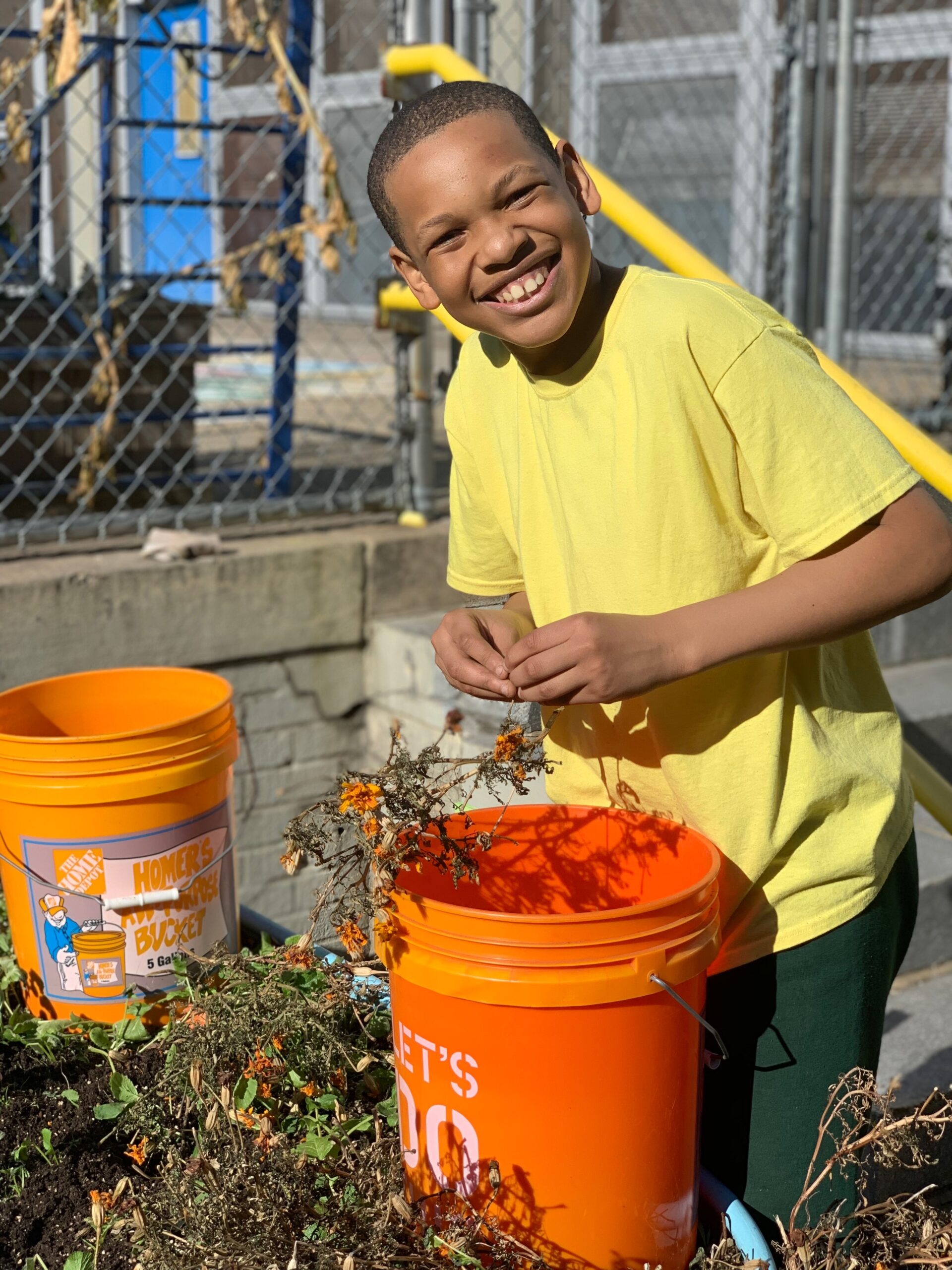
More connection to food and environmental justice means more initiative and leadership
- 86% of partner school teachers and staff say students ESYNYC increased students’ sense of stewardship towards the earth
- P.S. 216’s Green Team successfully introduced the school’s first school-wide recycling system in 2019. They even gave their principal recommendations for improving her own recycling sorting
- Students at P.S. 109 in the Bronx help each other sort their food waste in the cafeteria for composting, and even help turn and spread the compost using our compost bin system in the school yard
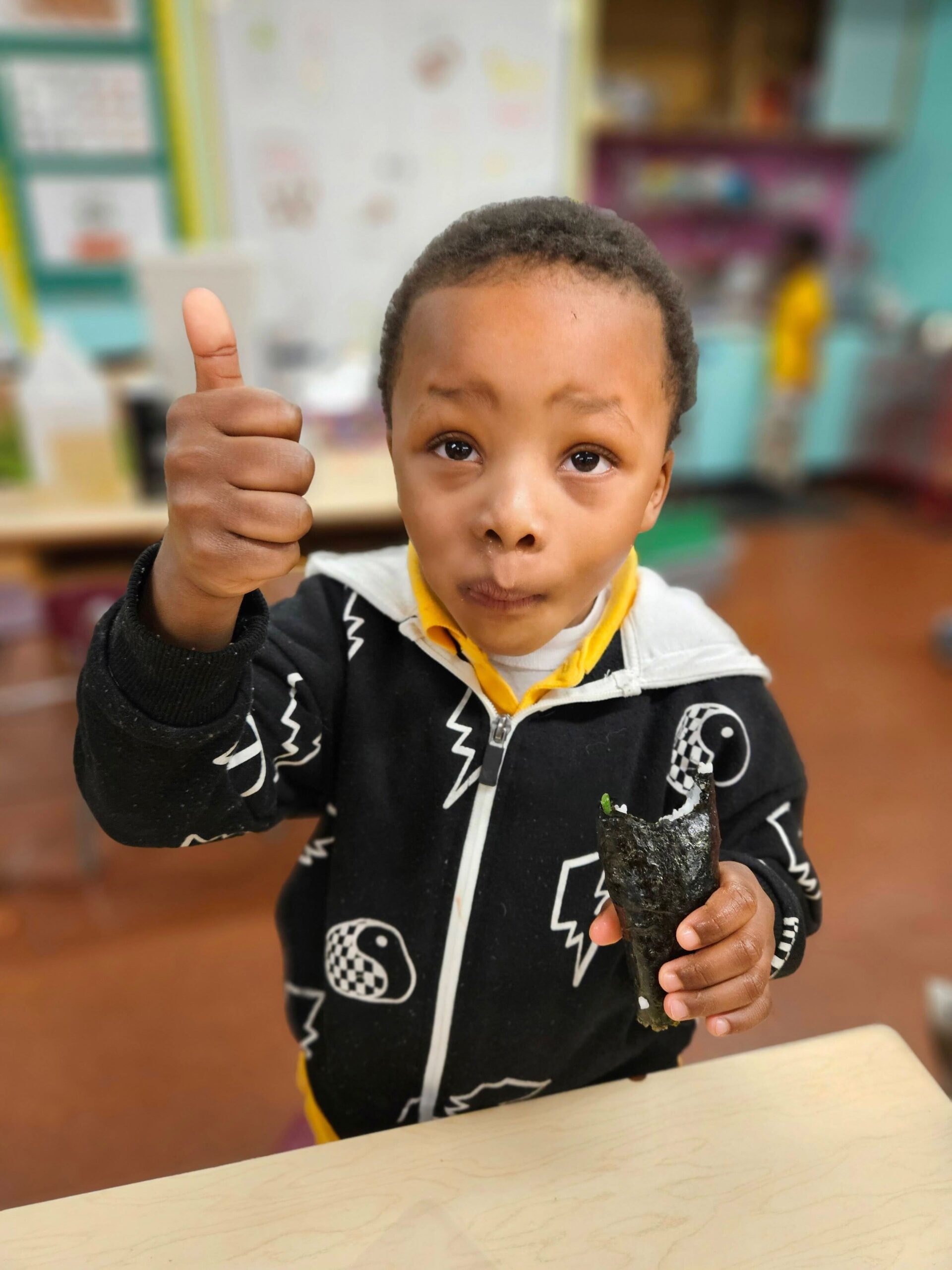
More exposure to plants means more exploration and eagerness to try nutritious, plant-based foods
- 96% of our students tried the food they made in our cooking classes
- 70% of students said they learned to like a new fruit or vegetable during ESYNYC classes
OUR IMPACT AT HOME
Our caregivers and families gave glowing responses to the way their children respond and grow through edible education in recent* surveys.
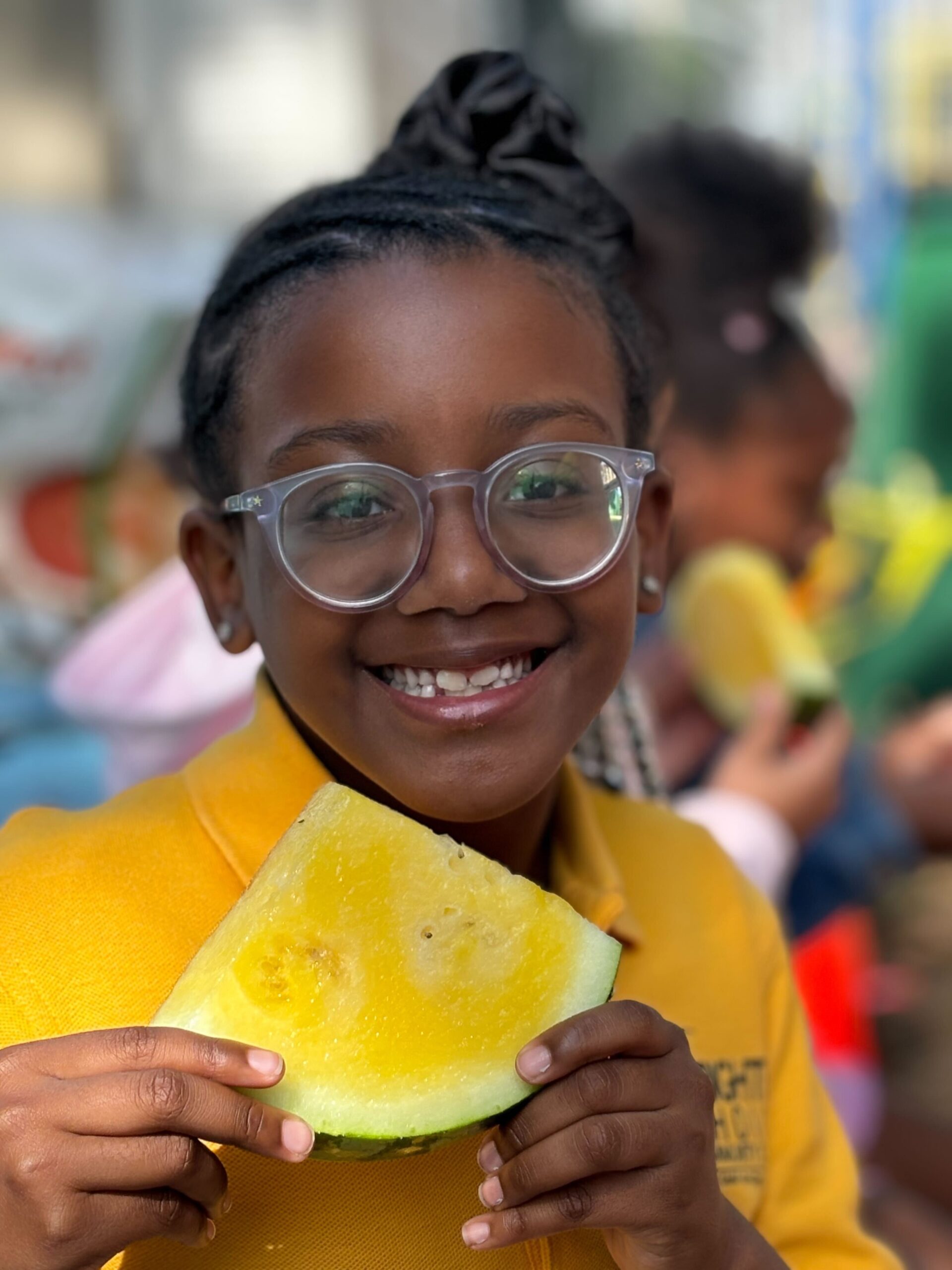
Families say:
- 95% of our caregivers agree that their child has shown more interest in eating healthy
- 89% of our caregivers agree that their child has shown more interest in eating fruits
- 89% of our caregivers agree that their child has shown more interest in eating vegetables